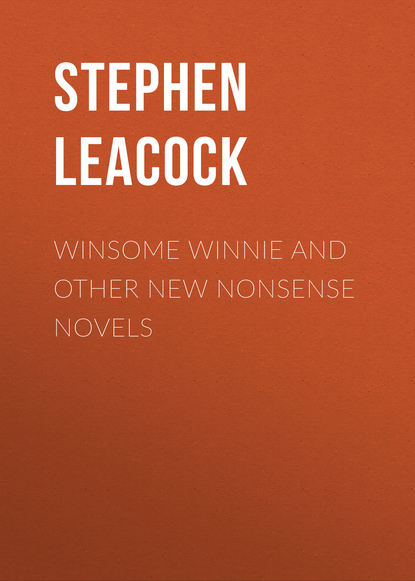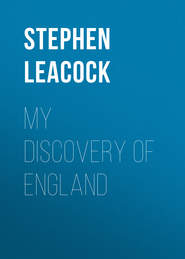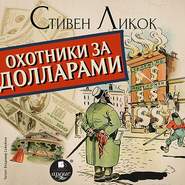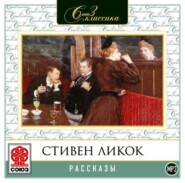По всем вопросам обращайтесь на: info@litportal.ru
(©) 2003-2025.
✖
Winsome Winnie and other New Nonsense Novels
Автор
Год написания книги
2019
Настройки чтения
Размер шрифта
Высота строк
Поля
"Stop a minute," said Kent. "What is the meaning of that hat?"
A light gossamer hat, gay with flowers, hung on a peg at the side of the room.
"We thought of that," said Edwards, "and we have left it there. Whoever comes for that hat has had a hand in the mystery. We think–"
But Transome Kent was no longer listening. He had seized the edge of the billiard table.
"Look, look!" he cried eagerly. "The clue to the mystery! The positions of the billiard balls! The white ball in the very centre of the table, and the red just standing on the verge of the end pocket! What does it mean, Edwards, what does it mean?"
He had grasped Edwards by the arm and was peering into his face.
"I don't know," said the Inspector. "I don't play billiards."
"Neither do I," said Kent, "but I can find out. Quick! The nearest book-store. I must buy a book on billiards."
With a wave of the arm, Kent vanished.
The Inspector stood for a moment in thought.
"Gone!" he murmured to himself (it was his habit to murmur all really important speeches aloud to himself). "Now, why did Throgton telephone to me to put a watch on Kent? Ten dollars a day to shadow him! Why?"
CHAPTER IV
THAT IS NOT BILLIARD CHALK
Meantime at the Planet office Masterman Throgton was putting on his coat to go home.
"Excuse me, sir," said an employé, "there's a lot of green billiard chalk on your sleeve."
Throgton turned and looked the man full in the eye.
"That is not billiard chalk," he said, "it is face powder."
Saying which this big, imperturbable, self-contained man stepped into the elevator and went to the ground floor in one drop
CHAPTER V.
HAS ANYBODY HERE SEEN KELLY?
The inquest upon the body of Kivas Kelly was held upon the following day. Far from offering any solution of what had now become an unfathomable mystery, it only made it deeper still. The medical testimony, though given by the most distinguished consulting expert of the city, was entirely inconclusive. The body, the expert testified, showed evident marks of violence. There was a distinct lesion of the œsophagus and a decided excoriation of the fibula. The mesodenum was gibbous. There was a certain quantity of flab in the binomium and the proscenium was wide open.
One striking fact, however, was decided from the testimony of the expert, namely, that the stomach of the deceased was found to contain half a pint of arsenic. On this point the questioning of the district attorney was close and technical. Was it unusual, he asked, to find arsenic in the stomach? In the stomach of a club man, no. Was not half a pint a large quantity? He would not say that. Was it a small quantity? He should not care to say that it was. Would half a pint of arsenic cause death? Of a club man, no, not necessarily. That was all.
The other testimony submitted to the inquest jury brought out various facts of a substantive character, but calculated rather to complicate than to unravel the mystery. The butler swore that on the very day of the murder he had served his master a half-pint of arsenic at lunch. But he claimed that this was quite a usual happening with his master. On cross-examination it appeared that he meant apollinaris. He was certain, however, that it was half a pint. The butler, it was shown, had been in Kivas Kelly's employ for twenty years.
The coachman, an Irishman, was closely questioned. He had been in Mr. Kelly's employ for three years—ever since his arrival from the old country. Was it true that he had had, on the day of the murder, a violent quarrel with his master? It was. Had he threatened to kill him? No. He had threatened to knock his block off, but not to kill him.
The coroner looked at his notes. "Call Alice Delary," he commanded. There was a deep sensation in the court as Miss Delary quietly stepped forward to her place in the witness-box.
Tall, graceful and willowy, Alice Delary was in her first burst of womanhood. Those who looked at the beautiful girl realized that if her first burst was like this, what would the second, or the third be like?
The girl was trembling, and evidently distressed, but she gave her evidence in a clear, sweet, low voice. She had been in Mr. Kelly's employ three years. She was his stenographer. But she came only in the mornings and always left at lunch-time. The question immediately asked by the jury—"Where did she generally have lunch?"—was disallowed by the coroner. Asked by a member of the jury what system of shorthand she used, she answered, "Pitman's." Asked by another juryman whether she ever cared to go to moving pictures, she said that she went occasionally. This created a favourable impression. "Miss Delary," said the district attorney, "I want to ask if it is your hat that was found hanging in the billiard-room after the crime?"
"Don't you dare ask that girl that," interrupted the magistrate. "Miss Delary, you may step down."
But the principal sensation of the day arose out of the evidence offered by Masterman Throgton, general manager of the Planet. Kivas Kelly, he testified, had dined with him at his club on the fateful evening. He had afterwards driven him to his home.
"When you went into the house with the deceased," asked the district attorney, "how long did you remain there with him?"
"That," said Throgton quietly, "I must refuse to answer."
"Would it incriminate you?" asked the coroner, leaning forward.
"It might," said Throgton.
"Then you're perfectly right not to answer it," said the coroner. "Don't ask him that any more. Ask something else."
"Then did you," questioned the attorney, turning to Throgton again, "play a game of billiards with the deceased?"
"Stop, stop," said the coroner, "that question I can't allow. It's too direct, too brutal; there's something about that question, something mean, dirty. Ask another."
"Very good," said the attorney. "Then tell me, Mr. Throgton, if you ever saw this blue envelope before?" He held up in his hand a long blue envelope.
"Never in my life," said Throgton.
"Of course he didn't," said the coroner. "Let's have a look at it. What is it?"
"This envelope, your Honour, was found sticking out of the waistcoat pocket of the deceased."
"You don't say," said the coroner. "And what's in it?"
Amid breathless silence, the attorney drew forth a sheet of blue paper, bearing a stamp, and read:
"This is the last will and testament of me, Kivas Kelly of New York. I leave everything of which I die possessed to my nephew, Peter Kelly."
The entire room gasped. No one spoke. The coroner looked all around. "Has anybody here seen Kelly?" he asked.
There was no answer.
The coroner repeated the question.
No one moved.
"Mr. Coroner," said the attorney, "it is my opinion that if Peter Kelly is found the mystery is fathomed."
Ten minutes later the jury returned a verdict of murder against a person or persons unknown, adding that they would bet a dollar that Kelly did it.
The coroner ordered the butler to be released, and directed the issue of a warrant for the arrest of Peter Kelly.














